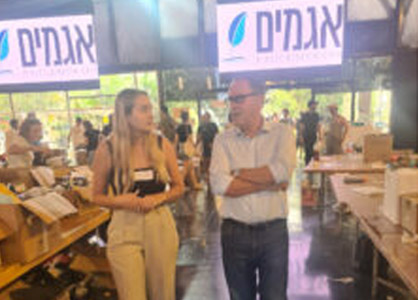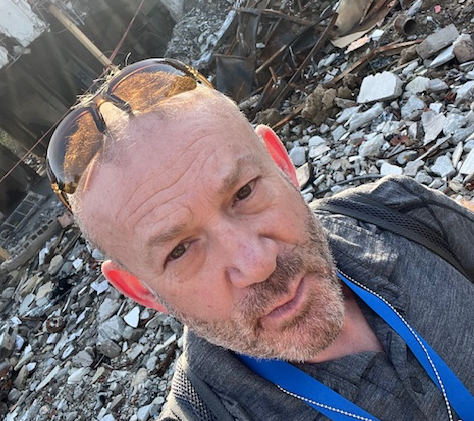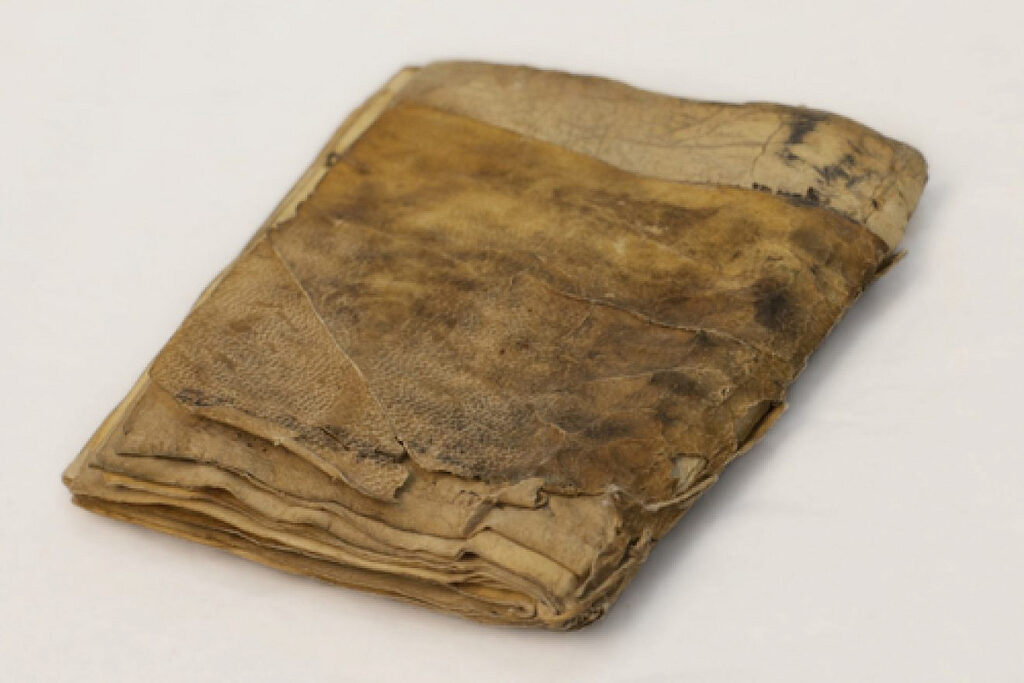
BGU Helps Preserve Galapagos National Park
BGU Helps Preserve Galapagos National Park
April 25, 2013
BEER-SHEVA, Israel, April 25, 2013 — Ben-Gurion University of the Negev’s Jacob Blaustein Institutes for Desert Research (BIDR) signed a cooperation agreement with the Galapagos National Park to aid conservation of the endangered Islands’ biological diversity.
“In spite of excellent management and meticulous policing of ecotourism, a full-blown ecological disaster is unfolding before our eyes, inflicted by the devastating effects of invasive species,” explains Prof. Ariel Novoplansky, of BIDR’s Marco and Louise Mitrani Department of Desert Ecology.
Increased tourism is exposing the Islands’ unique and sensitive biodiversity to destructive invasive species, including feral domestic animals, aggressive weedy plants, various insect pests, and alien marine organisms. These organisms arrive from the mainland and rapidly multiply in the natural ecosystems and abandoned farms, outcompeting the local fauna and flora, and changing entire ecosystems that exist nowhere else in the world.
According to Prof. Novoplansky, “Agriculture and nature conservation are usually considered competing and antagonistic forces, but not so in the Galapagos.”
Novoplansky was part of an Israeli delegation that recently visited the Galapagos for meetings and field excursions with managers, rangers, policy-makers, farmers, and conservation experts. This led to a cooperation agreement to determine the best approach to minimize the detrimental effects of invasive species to the biodiversity, natural habitats and agricultural areas of the archipelago.
“The project is based on a new premise, whereby agricultural development is not necessarily used as a tool for increasing food production, fighting poverty and improving the standard of living,” says Novoplansky. “In fragile places like the Galapagos, sensible conservation strategies may take advantage of carefully crafted agricultural practices that combat and prevent the destructive effects of invasive species, the fate of which we are all so anxious about.”
A joint Ecuadorian-Israeli team will pursue novel nature management strategies that will help rehabilitate natural ecosystems. Researchers will develop agricultural methodologies and water technologies to increase local agricultural production and reduce the island’s dependency on fresh produce imported from the mainland.
The Ecuadorian Ministry of Environment and the Directorate of the Galapagos National Park invited the delegation. In addition to Prof. Novoplansky, the Israeli team consists of Prof. Noam Weisbrod of BGU’s Zuckerberg Institute for Water Research; Prof. Uriel Safriel, who heads BIDR’s Center of International Conventions; Dr. Alon Ben-Gal, a desert agriculture expert from the Volcani Center of the Israeli Ministry of Agriculture; and Prof. Aliza Fleischer, an agricultural economist from The Hebrew University of Jerusalem.
The remote Galapagos Islands, re-discovered by Charles Darwin, are rare ‘natural laboratories’, where the special ecological conditions and extreme isolation create unique and stunningly beautiful biological diversity. It was Darwin’s visits to the Galapagos — 1,000 kilometers off the west coast of South America — that helped him formulate some of the central principles of his Theory of Evolution.
Since Ecuador annexed the Galapagos 180 years ago and only started to settle it less than 100 years ago, its rare natural treasures have been mostly preserved until very recently. In spite of more than 50 years of dedicated management and conservation by the authorities of the Galapagos National Park, the conservation policies are no longer sufficient.
ABOUT AMERICANS FOR BEN-GURION UNIVERSITY
By supporting a world-class academic institution that not only nurtures the Negev, but also shares its expertise locally and globally, Americans for Ben-Gurion University engages a community of Americans who are committed to improving the world. David Ben-Gurion envisioned that Israel’s future would be forged in the Negev. The cutting-edge research carried out at Ben-Gurion University drives that vision by sustaining a desert Silicon Valley, with the “Stanford of the Negev” at its center. The Americans for Ben-Gurion University movement supports a 21st century unifying vision for Israel by rallying around BGU’s remarkable work and role as an apolitical beacon of light in the Negev desert.
About Ben-Gurion University of the Negev
Ben-Gurion University of the Negev embraces the endless potential we have as individuals and as a commonality to adapt and to thrive in changing environments. Inspired by our location in the desert, we aim to discover, to create, and to develop solutions to dynamic challenges, to pose questions that have yet to be asked, and to push beyond the boundaries of the commonly accepted and possible.
We are proud to be a central force for inclusion, diversity and innovation in Israel, and we strive to extend the Negev’s potential and our entrepreneurial spirit throughout the world. For example, the multi-disciplinary School for Sustainability and Climate Change at BGU leverages over 50 years of expertise on living and thriving in the desert into scalable solutions for people everywhere.
BGU at a glance:
20,000 students | 800 senior faculty | 3 campuses | 6 faculties: humanities & social sciences, health sciences, engineering sciences, natural sciences, business & management, and desert research.
For all press inquiries, please contact:
James Fattal, J Cubed Communications
516.289.1496



